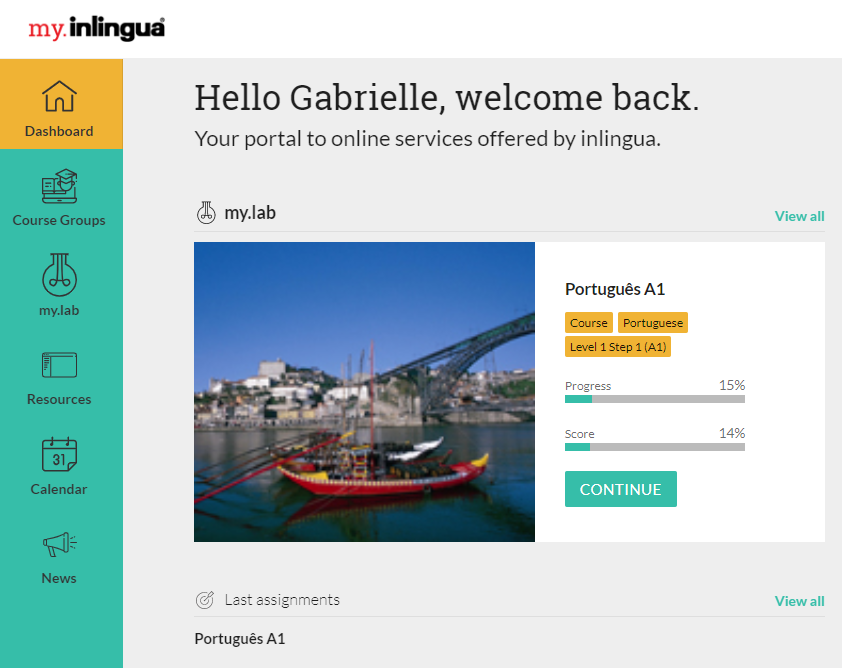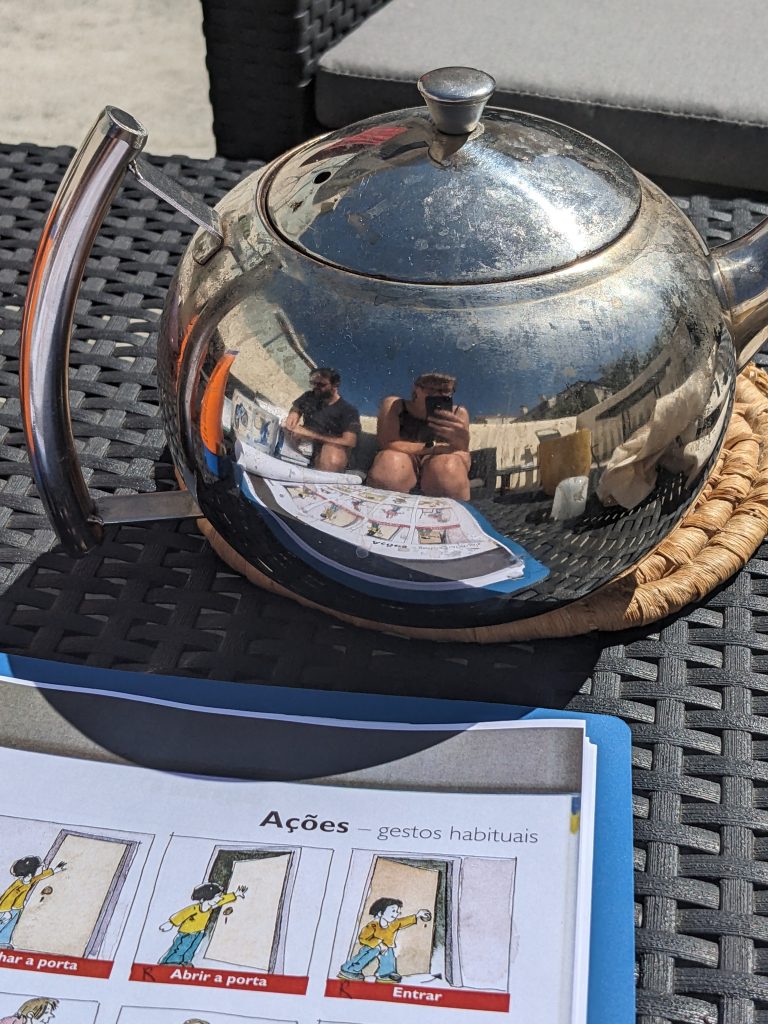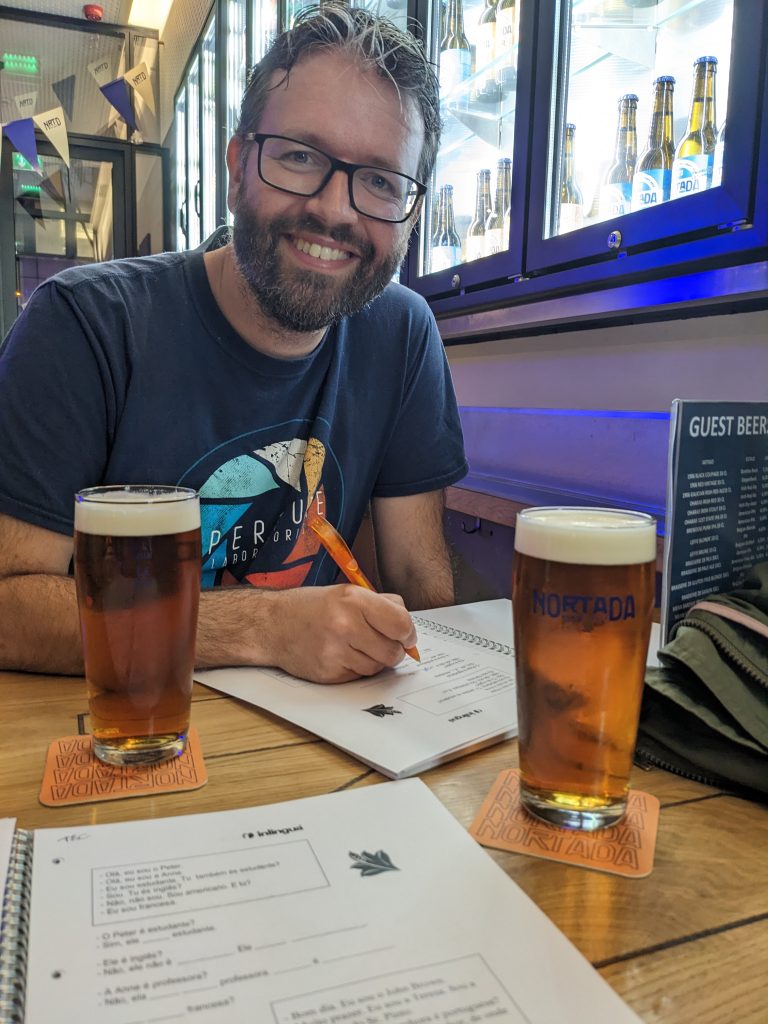The accents and the O ó ãos they haunt me
Some say it’s easy, moving countries in this ‘connected world’. Just like we do online, we can ‘simply’ use English as a ‘lingua franca’: a language that is used as a global means of inter-community communication. The majority of people now speak English, so it’s not going to be much of a challenge. We can ‘just‘ make things work. We can ‘just‘ point at things if needed.
It’s easy to thing like that. Take this blog for example. I’m writing this in English, even though my native language is Dutch. I know there aren’t as many Dutch speakers in my network, but, even if I were to include a minority group of non-Dutch speakers, I know I can use English because most them can read and speak English.
But the thing is, here on this blog, I’m writing for a particular audience of whom I know they will be able to read English. I’m communicating in an environment that is mine and that is mine to control. I’m sharing and communicating on my terms, and I know that it might exclude people (although the translate options browsers have now a day do a pretty decent job of solving that problem). When I’m in a shop or a building here, though, that’s not my environment, and it’s not mine to control. I cannot expect others to adjust to my needs when I’m the one to have voluntarily entered a completely new environment that’s not mine to dictate.
So we adapt. Be it slowly.
Start at the beginning: back to school

Two weeks ago we had our first language course. We’re going twice a week to Inlingua in the city centre of Porto. We have a lovely small group of 8 people in total, and we’re wildly diverse. We’re from the Netherlands, Israel, South Africa, Bangladesh/Australia, Slovakia, Spain and India. Some people have been in Porto or Portugal for over a year, others, like us, are completely fresh.
Our teacher is a wonderful native from Porto, and she has a great teaching style. She is inclusive and kind and funny. With the patience of a saint, she tries to help us not cut any corners, especially if she knows you can (and should) do or know better. She communicates in English as little as possible. Every time ask for some clarification, she responds in English to explain, but will also give any words in Portuguese for us to learn.
There is a lot to learn. A. Lot. Portuguese is not an easy language. Knowing and being familiar with a variety of other European languages, I can make out what the gist of a text is, and if people speak slowly, I can understand quite a bit of what they want to say. Portuguese is a Romance language, and having had French in high school, there’s a lot of recognition going on in my head. But forming sentences, being able to come up with words, let alone sentences or the correct forms of the words? That’s a completely different ballpark.
What you see isn’t what you get, at all

We’re starting at the very beginning, level A1. It’s all about getting our heads around which words are masculine (o/os) and which are feminine (a/as). It’s about infinite source of confusion about the verb ‘to be’. It has two versions. One that you use when you’re referring to a constant such as marital status (ser) and one you use when you’re referring to something more temporary, like someone’s current location or mood (estar). We haven’t even made it to the verb ‘to have’ (ter) yet! And that’s just the writing.
The pronunciation is a completely separate beast. The accents and Os.
When I first heard Portuguese, I couldn’t place it. I thought it was a more central-european language with some close relations to Russian. This makes it difficult to rhyme with how we read it, which is much closer to French and Spanish (both Romance languages). This makes the inclination to pronounce what you read in a more Spanish tone very tempting while also making what you hear quite difficult to match to how you know things are written down.
Still, the going might be slow, and of course we shouldn’t expect the world after only 4 2-hour classes and some homework, but it does feel doable. The motivation to want to be able to connect with and talk to people in their own language is a great one. At a very basic level, we can now say who we are, where we’re from, what language(s) we speak and point at some objects like books and triumphantly shout out what they’re called in Portuguese, but there’s more to come soon.
Out and about: let people know you’re learning!

When we go out we tell people straight away we’re learning Portuguese. Not for clout, but because hopefully they’ll not default to English. And it helps! Upon hearing about our language learning ambitions, immediately people want to help out, explain how you say things, and kindly correct you when you use the wrong (type of) word.
For example, the owner of the restaurant we at at last week corrected me when I made a slight mistake. I answered ‘Muito bem!’ to him asking how I found the food. The correct phrase was ‘Muito bom’.
Similarly, the server at the brewery, upon learning about our studying efforts, spoke to us in two languages; When he responded, he used Portuguese first, slowly, and then explaining what that was in English. When we spoke first asking for something, he’d also translate our efforts into Portuguese.
People are so willing to help us learn, it seems, and it would be insane not to use that to our advantage. So, we’re grabbing that opportunity with both hands, also because it means we have an excuse to go to breweries and restaurants more often… especially on Mondays and Thursday after class, so we can turn our ‘Trabalho para casa’ into ‘Trabalho para fábrica de cerveja’…